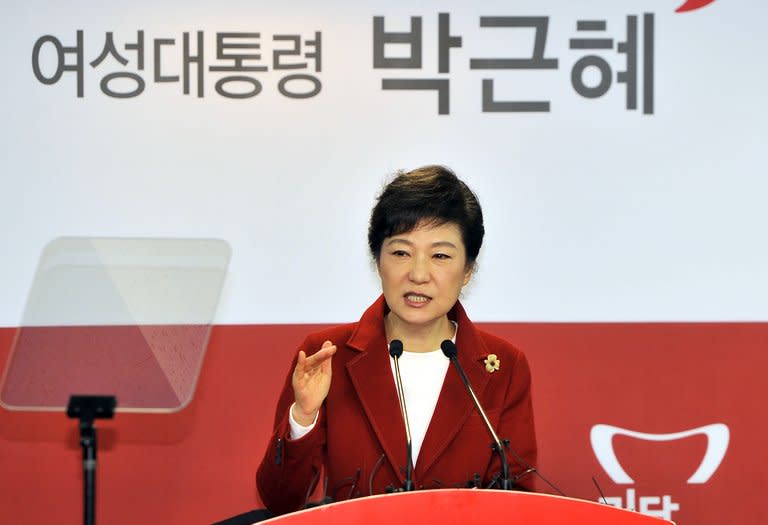New S.Korea leader vows 'pre-emptive' currency move

South Korea's incoming president Park Geun-Hye has signalled her administration's willingness to step in to stabilise the won and protect exporters battling a stronger Korean currency and a weaker yen. Park, who will be formally sworn in on Monday, told business leaders in Seoul on Wednesday that she was "acutely aware" of the importance of currency stability for the South's export-reliant economy. "We will act in a pre-emptive and efficient manner so that our companies will not suffer," Park's spokesman quoted her as saying. Her comments came just days after G20 finance ministers meeting in Moscow moved to calm fears of looming "economic warfare" on the currency markets. Those fears have largely been fuelled by the recent steep decline in the Japanese yen, which critics have accused Tokyo of manipulating to give its manufacturers a competitive edge in key exports markets over Asian rivals. In South Korea, the decline in the yen has been matched by a surge in the Korean won, which gained more than 8.0 percent against the dollar in 2012. The won has gained nearly 7.0 percent against the yen this year, after a 21 percent jump last year. Hyundai Motor, the world's number five carmaker with its smaller affiliate Kia, said a 12 percent drop in its fourth-quarter operating profit from a year ago was partly attributable to the won's rise and the increased price competitiveness of its Japanese rivals. A strong won was also cited for a 51-percent plunge in Kia's fourth-quarter operating profit. Samsung, the world's top maker of smartphones and memory chips, has warned that a stronger won could slice 3.0 trillion won ($2.7 billion) off its operating profit this year. Seoul's financial authorities are known to have occasionally stepped into the foreign exchange market in a move called "smooth operations" aimed at curbing what they view as excessive currency volatility. The South fears that "hot money" coming into the country could exit just as swiftly -- as it did during the 1997-1998 East Asian financial crisis, which forced the country to seek IMF aid.

